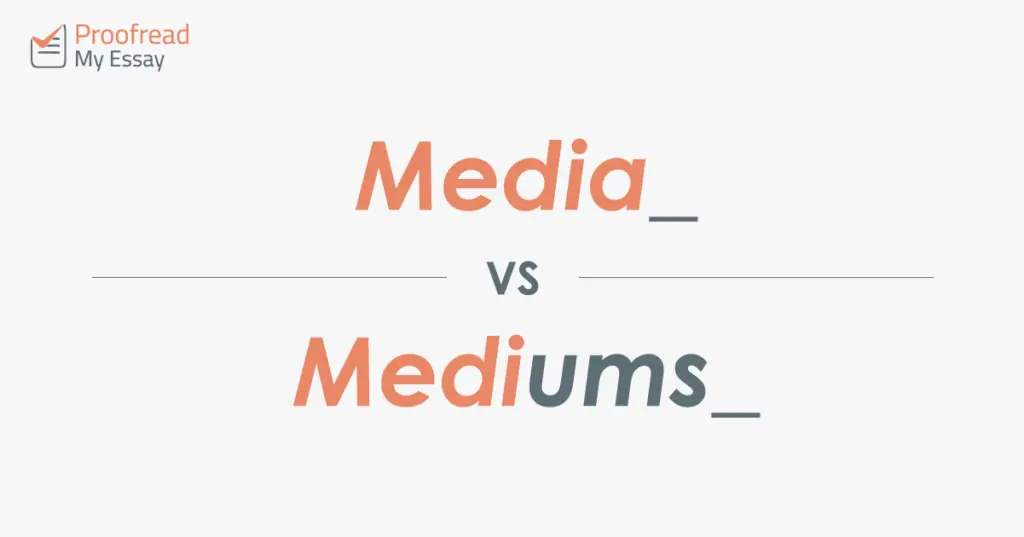The word ‘medium’ has several meanings. More confusingly still, it also has two distinct plurals depending on how you’re using the term: ‘media’ and ‘mediums’. This can cause confusion. Luckily, we can help! Check out our guide to the differences between ‘media’ and ‘mediums’ if you want to avoid errors in your work.
The Many Meanings of Medium
First of all, we should define the main uses of medium. One is as an adjective meaning ‘average’ or ‘in the middle of two extremes’. This is what we mean when we say something is ‘medium sized’.
But since we’re looking at plurals, we’ll focus on how ‘medium’ is used as a noun. Definitions include:
- A way of expressing or communicating something (e.g. English as a ‘medium of instruction’)
- A substance used to transmit or grow something (e.g. a ‘nutrient-rich medium’)
- Materials or forms used in art (e.g. the ‘medium of paint’)
- Someone who can communicate with the dead (e.g. a ‘psychic medium’)
The common theme here is of an intervening substance or system. For instance, just as paint is a medium used by artists to create art, the English language is a ‘medium’ we can use to express ourselves, and a psychic ‘medium’ claims to intervene between the living and the dead.
Media (Communication, Science and Art)
‘Media’ is the original Latin plural of ‘medium’. In modern English, it usually refers to newspapers, television and other forms of mass communication. This has origins as a standard plural, but in practice we now often use it as an uncountable noun:
The media is lying to us about jelly!
You’ll notice that we say ‘The media is’ here, using a singular verb despite talking about several types of ‘media’, since uncountable (or mass) nouns are treated as singular.

For other uses, we treat ‘media’ as a standard plural, including in the sciences and the arts:
We treated the media chemically prior to the experiment.
As an experimental artist, Dali worked in various media.
Find this useful?
Subscribe to our newsletter and get writing tips from our editors straight to your inbox.
Most of the time, then, the correct plural for ‘medium’ is ‘media’.
Mediums (Psychics)
‘Mediums’ does overlap with ‘media’ in some cases. For example, it’s still fairly common to refer to ‘artistic mediums’ instead of ‘artistic media’, so we could say:
As an experimental artist, Dali worked in various mediums.
However, most of the time ‘mediums’ is used in relation to psychics:
I’ve visited three mediums to get my fortune told!
This term therefore has a narrower definition than ‘media’. And though it can be useful, you’ll usually only need this word if you’re at a very mystical conference!

(Image: InfoWire.dk/flickr)
Media or Mediums?
While these terms are interchangeable in some cases, you can ensure clarity by saving ‘mediums’ for discussing psychics. In most other situations, using ‘media’ will be correct. Remember:
Media = Mass communication or intervening substances
Mediums = People with psychic abilities



